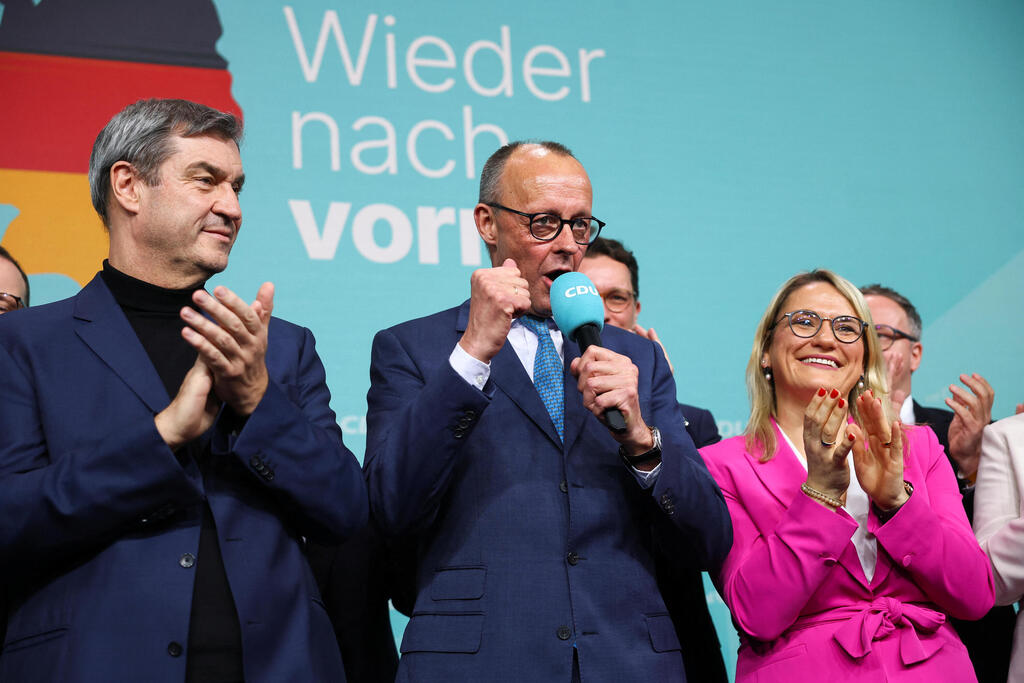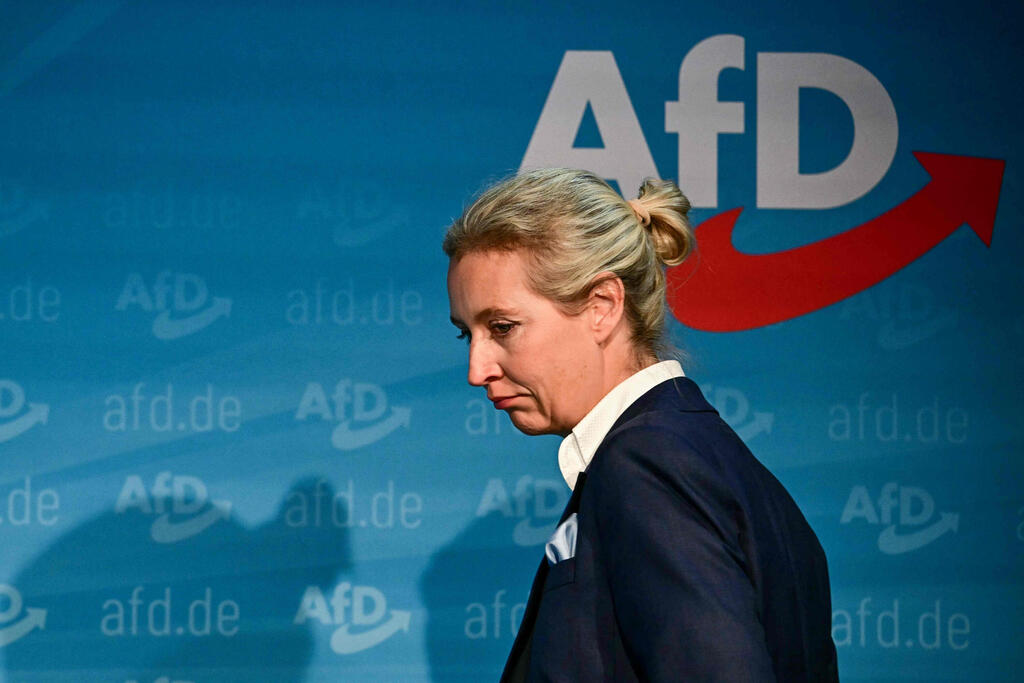Friedrich Merz, who led the Christian Democratic Union (CDU) to victory in Germany’s general elections on Sunday with nearly a third of the votes, is expected to become the country’s next chancellor. His leadership is seen as a positive development for Israel. Merz is considered a strong supporter of Israel and, before the elections, pledged to lift restrictions on arms exports to the country and maintain close ties between the two nations.
According to the preliminary results published overnight, Merz’s Christian Democratic bloc secured 28.6% of the votes, while the far-right Alternative for Germany (AfD) party came in second with 20.8% — the highest result for an extreme right-wing party in Germany since World War II. The center-left Social Democratic Party (SPD), led by outgoing Chancellor Olaf Scholz, collapsed to 16.4%. The Greens secured 11.6%, while the far-left Die Linke party achieved a significant gain with 8.8%.
Merz, 69, was born in West Germany to a family of lawyers and politicians, with his father having served as a judge in several Nazi trials. He earned a law degree in 1985 and was appointed a judge soon after but left the judiciary within a year to become a legal advisor in the chemical industry. His political career began in 1989 when he was elected to the European Parliament, and in 1994 he entered the Bundestag. Over the next 15 years, he became the CDU’s top authority on financial and budgetary policy.
Get the Ynetnews app on your smartphone: Google Play: https://bit.ly/4eJ37pE | Apple App Store: https://bit.ly/3ZL7iNv
In the early 2000s, Merz attempted to challenge Angela Merkel for party leadership but lost. He became one of the first casualties of her political purge, in which she sidelined male rivals. In 2009, he left politics and turned to business, becoming a multi-millionaire through his work as a corporate lawyer and board member of major companies. He also obtained a pilot’s license and purchased two private planes.
Merz returned to politics in 2018 after Merkel announced she would not seek another term. In 2021, following the CDU’s election defeat, he was elected party leader on his third attempt. Since then, he has worked to return the conservatives to power and distance the CDU from Merkel’s political legacy while appealing to centrist voters.
'With Israel, no ifs or buts'
Merz is known as an unwavering supporter of Israel. Following the October 7 attack, he visited both southern and northern Israel and criticized outgoing Chancellor Olaf Scholz for allowing a de facto arms embargo on Israel. Merz vowed that under his government, there would be no such restrictions and also condemned the Biden administration’s policies toward Israel during the war.
Additionally, Merz announced that he would invite Prime Minister Benjamin Netanyahu to visit Germany despite the International Criminal Court’s arrest warrant against him. His party has pledged to continue viewing Israel as a "raison d’être" — a fundamental reason for Germany’s existence.
3 View gallery


Friedrich Merz meeting with Prime Minister Benjamin Netanyahu
(Photo: Kobi Gideon/GPO)
While Merz supports a two-state solution, he insists that Palestinians must first recognize Israel’s right to exist. In the past, he has stated that "Germany’s relationship with Israel is unique — no ifs or buts," and in October 2023, he declared that Germany would not grant asylum to Palestinians because, in his words, "Germany already has too many antisemites."
Beyond his stance on Israel, Merz’s policies focus on a strict approach to domestic issues in Germany. He advocates limiting immigration and closing the country’s doors to illegal migrants.
A month ago, after an illegal Afghan migrant killed a toddler in a stabbing attack, Merz reacted emotionally and attempted to push anti-immigration legislation in cooperation with AfD. This move broke a post-World War II political taboo, as mainstream parties in Germany have traditionally refused to collaborate with the far-right. The gamble cost him dearly: the law was not passed, hundreds of thousands protested against him, the far-left Die Linke gained renewed support, and the conservatives lost 2-3% in the polls.
A clear commitment: No government with AfD
On economic policy, Merz aims to cut unemployment benefits for 1.7 million citizens whom he claims are capable of working but choose not to. In foreign policy, he is a staunch supporter of the European Union and NATO, yet in response to Donald Trump’s recent actions, he has emphasized his goal of seeking greater independence for Germany.
Now, following his victory, Merz faces the challenge of forming a government coalition. Despite the decisive win, he will need to partner with more moderate parties to establish a stable government.
He has repeatedly promised not to include Alternative for Germany in his coalition — especially since Israel officially boycotts the party. If he breaks this commitment and includes the far-right AfD, it could pose a significant challenge for Israel, given the party’s opposition to Holocaust remembrance. On Sunday night, Merz reaffirmed his pledge to keep AfD out.
Following Merz's victory, Prime Minister Benjamin Netanyahu congratulated him on X:
"Congratulations to Friedrich Merz and the Christian Democratic Union on their decisive election victory tonight. I look forward to working closely with the new government to further strengthen the partnership between our countries."



